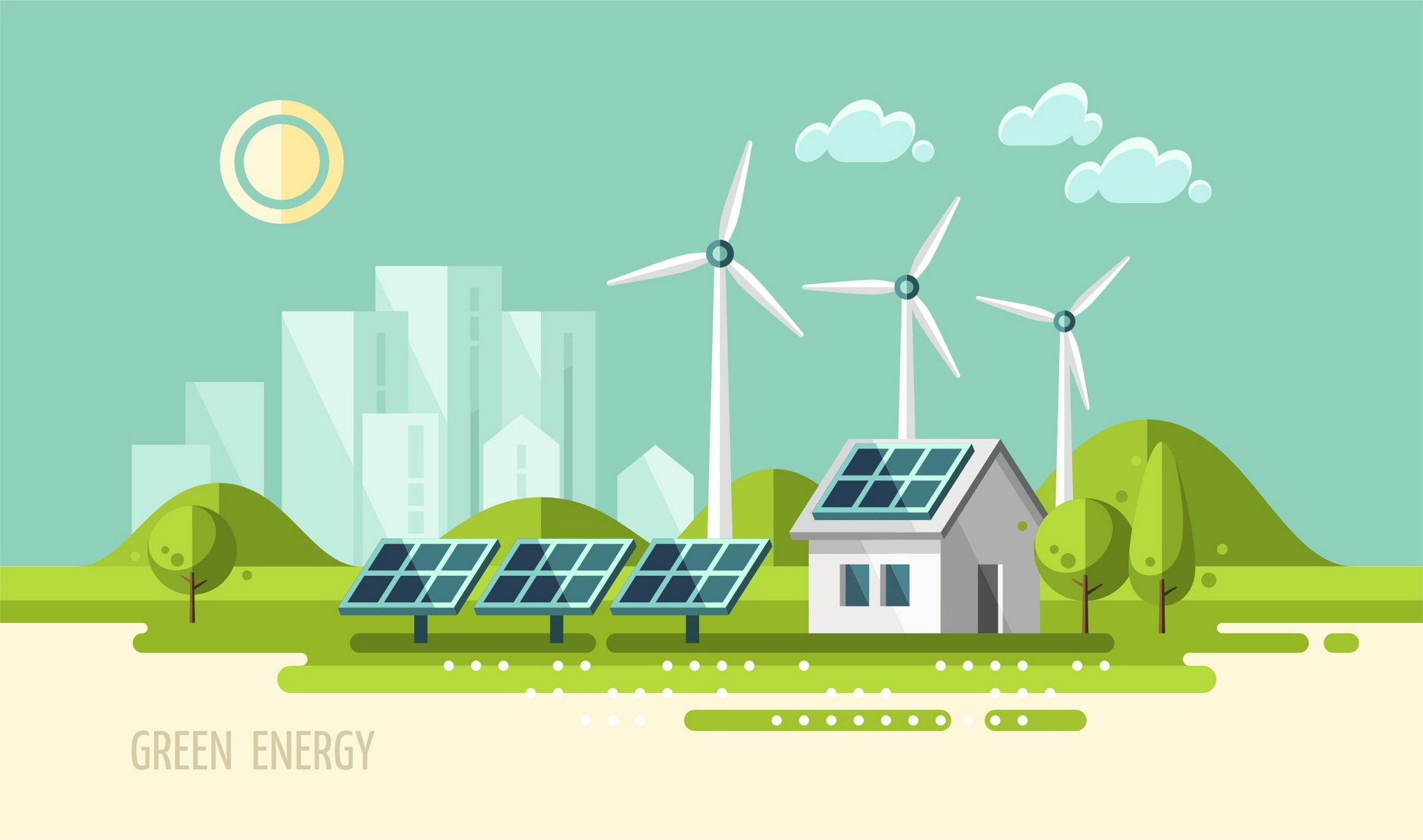(ThyBlackMan.com)
Key Takeaways:
- Discover various green energy options available for homeowners.
- Understand the benefits of transitioning to renewable energy sources.
- Learn practical tips for implementing green energy solutions at home.
- Stay informed with relevant and up-to-date resource links.
Explore green energy solutions for homeowners. Options like solar panels, energy-efficient appliances, and smart thermostats offer sustainability and cost savings. Government incentives and financing options make these upgrades more accessible. By embracing green energy, homeowners contribute to a cleaner environment while enjoying long-term financial benefits.

Introduction: The Growing Demand for Green Energy
Due to rising global environmental challenges, the necessity for clean and green energy sources has become more urgent. Homeowners worldwide are increasingly looking for environmentally friendly energy options that lower their carbon footprint and offer substantial savings on energy expenses. Partnering with a reliable Dallas electricity company can help identify the most suitable green energy solutions, ensuring a seamless transition to more sustainable practices.
This article delves deep into the many green energy options available to homeowners, shedding light on their benefits and offering practical tips for their implementation. From solar panels to geothermal energy, there are numerous ways to make your home more eco-friendly, and understanding these options is the first step towards a greener future.
Why Green Energy?
Green energy, derived from natural resources such as sunlight, wind, and water, represents a clean and renewable alternative to traditional fossil fuels. Its advantages are numerous and multifaceted. Sustainable energy sources are essential in the fight against climate change because they emit less emissions. This transition helps reduce the greenhouse gases contributing to global warming and fosters a healthier environment for future generations.
Moreover, the financial benefits of green energy must be balanced. Over time, adopting sustainable energy practices can substantially reduce utility bills. Initially, the investment might seem significant, but the long-term savings make it economically viable. Government incentives, like tax credits and rebates, further alleviate the initial costs, making green energy an attractive option for many homeowners.
Popular Green Energy Options for Homeowners
There are several green energy options readily accessible to homeowners, each offering unique benefits:
- Solar Power: Solar power is one of the most well-known and widely adopted sources of green energy. When installed on rooftops or in open spaces, solar panels capture the sun’s energy and convert it into electricity. This system reduces dependence on grid electricity and can generate surplus power that can be stored or sold back to the grid.
- Wind Energy: Suitable for areas with consistent wind patterns, small-scale wind turbines can provide electricity for individual homes. These turbines harness the wind’s kinetic energy, converting it into usable electrical power, making them an ideal solution for rural or coastal regions.
- Geothermal Energy: Leveraging the Earth’s natural heat, geothermal energy systems offer an efficient way to heat and cool homes. By installing a series of pipes below the ground, homeowners can tap into this sustainable energy source, significantly reducing the need for traditional HVAC systems and lowering energy consumption.
- Hydropower: While less common for individual homes, small-scale hydropower systems can generate electricity from nearby water sources such as streams or rivers. This alternative can be a dependable and practical energy solution but requires a good water source.
Implementing Green Energy Solutions at Home
Transitioning to green energy requires thoughtful planning and execution. Here’s a step-by-step guide to help homeowners get started:
- Conduct an Energy Audit: Before adjusting, assessing your home’s energy usage is critical. An energy audit helps identify areas where energy is wasted and highlights improvement opportunities. The audit can be conducted by professionals or through DIY methods using energy audit kits available online.
- Research and Choose Appropriate Solutions: Each home is unique, and the feasibility of different green energy options varies based on location, budget, and energy needs. For instance, solar panels might be ideal for homes in sunny regions, while wind turbines could be more suitable for areas with consistent wind patterns. Thorough research and consultations can help select the most appropriate green energy solution.
- Consult with Experts: Implementing green energy solutions often requires specialized knowledge. Engaging with professionals ensures that the systems are designed and installed correctly. They can provide valuable insights, assist with permits and paperwork, and ensure the installations comply with local regulations.
- Monitor and Maintain: Regular maintenance is crucial to ensure the efficiency and longevity of green energy systems. For example, solar panels need periodic cleaning to remove dust and debris that can diminish performance. Professional inspections once a year can help find and address little problems before they become bigger ones. Consistent monitoring also helps optimize energy usage and maximize the benefits of the installed systems.
Maintaining Solar Panels
Maintenance is a crucial consideration for homeowners who opt for solar panels. If dust and other contaminants build up on the panels, their efficiency may decrease. Regular cleaning, approximately once or twice a year, is recommended to ensure optimal performance. Additionally, it is advisable to conduct annual inspections to check for any damages or issues that might affect the system’s efficiency. Professional maintenance services can offer comprehensive checks and necessary repairs, ensuring your solar panels function effectively throughout their lifespan.
Benefits Beyond Cost Savings
While the financial savings of green energy are significant, numerous other benefits make it a worthwhile investment. One such benefit is the potential increase in property value. Homes equipped with green energy solutions are often more attractive to environmentally conscious buyers, which can enhance the property’s resale value.
Furthermore, several government programs and incentives are designed to encourage the adoption of renewable energy. These incentives can be tax credits, rebates, or grants, which can substantially reduce the initial installation costs. By leveraging these programs, homeowners can make the transition to green energy more affordable and economically feasible.
Staying Informed and Updated
The renewable energy landscape continuously evolves, with new technologies and innovations emerging regularly. Staying informed about these developments is crucial for homeowners looking to maximize the benefits of green energy. Reliable and authoritative sources, such as the U.S. Department of Energy and Renewable Energy World, give insightful explanations and current information on the most recent developments in the renewable energy industry. By staying up to date, homeowners can adopt cutting-edge technology that offers increased efficiency and significant savings and make well-informed selections.
Conclusion: The Future is Green
Green energy solutions offer a viable path toward a more sustainable and cost-effective future. Homeowners have various options, from solar panels to geothermal systems, each offering unique benefits aligned with their specific needs and circumstances. Making informed decisions and collaborating with experts can ensure a seamless and rewarding transition to renewable energy. With the right approach and consistent maintenance, green energy solutions can provide significant savings, enhance property value, and contribute positively to the environment, paving the way for a greener and more sustainable future for all.
Staff Writer; John P. Love

















Green is just the beginning.